
If you’re a homeowner who has invested in solar panels, you’re likely enjoying the benefits of lower energy bills and a reduced carbon footprint. However, it’s important to remember that solar panels maintenance is require regularly to ensure they continue to operate efficiently. We’ll discuss the dos and don’ts of solar panel cleaning, monitoring performance and efficiency, troubleshooting and repairs, and how to maximize your solar panels’ lifespan and return on investment.
Regular cleaning is an essential part of solar panel maintenance. Dust, dirt, and debris can accumulate on the surface of the panels, reducing their efficiency and output. This can lead to a decrease in energy production and an increase in energy costs. In addition, bird droppings and other debris can cause damage to the panels over time. Regularly cleaning your solar panels ensures that they continue to operate at peak performance and maximize your return on investment.
Regular cleaning is crucial in keeping your energy production at its highest potential. Solar panels generate electricity by converting sunlight into energy. Any dirt, dust, or debris accumulating on the panels will obstruct the sunlight and reduce the amount of energy produced. This means that even if you have invested in high-quality solar panels, you may not get the maximum benefit from them if they are not cleaned regularly.
If you live in an area with heavy rainfall, you may think your solar panels will self-clean. However, this is not always the case. Rainwater may not be enough to remove all the dirt and grime that builds up on the panels. Regular cleaning will ensure that your panels are free from any obstructions and are able to generate the maximum amount of energy possible. It is recommended to clean your solar panels at least once every six months as part of solar panel maintenance work, and if you live in a particularly dusty or dirty environment, you may need to clean them more frequently.

Keeping your solar panels clean is crucial to their efficiency and longevity, but you’ll want to be careful not to damage them in the process. Here are some dos and don’ts to follow when cleaning your residential solar panels:
To ensure that you’re getting the most out of your investment, it’s important to monitor the performance and efficiency of your energy system. This can be done in a number of ways, including using monitoring software or hiring a professional to conduct periodic inspections. Regular monitoring and doing regular solar panel maintenance can help identify any issues or inefficiencies in your system, allowing you to address them before they become major problems.
One important aspect of monitoring is keeping track of your solar panel output. By recording the amount of energy your panels are producing, you can see if there are any fluctuations or drops in performance. This information can help you identify potential issues, such as shading or damage to your panels, and take action to address them. Additionally, monitoring your energy usage can help you identify areas where you can reduce consumption, further maximizing the efficiency of your system. By staying on top of performance and efficiency, you can ensure that your solar panels are providing the maximum benefit for your home and your wallet.
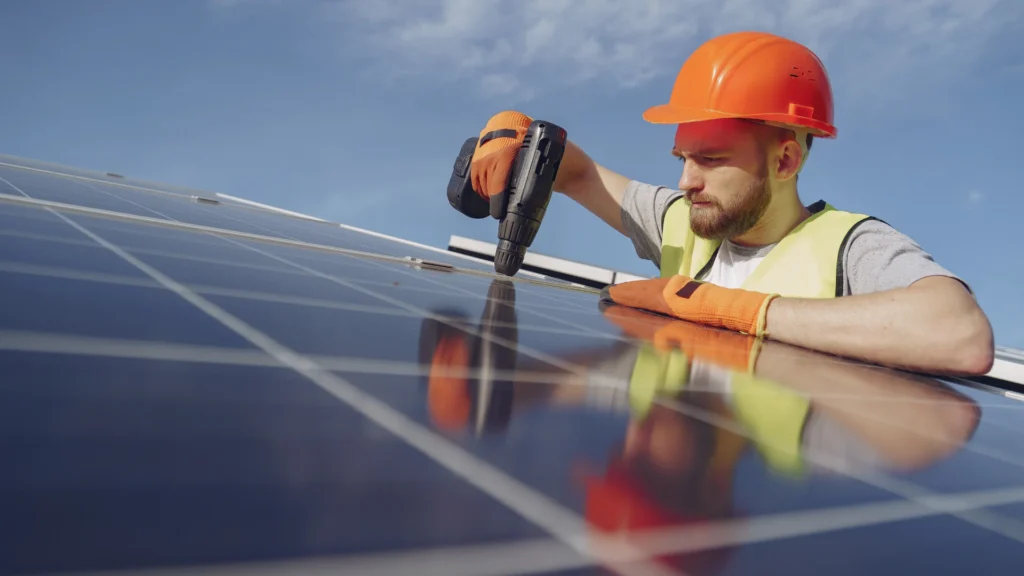
If your energy system is experiencing issues, troubleshooting, and repairs may be necessary to ensure that it continues to operate efficiently and effectively. One common issue that homeowners may encounter is a drop in energy production. This could be caused by a variety of factors, such as shading from nearby trees or buildings, dirty solar panels, or a malfunctioning inverter. To troubleshoot this issue, it is important to first check for any obvious obstructions or dirt on the panels. If this does not solve the problem, it may be necessary to contact a professional to diagnose and repair and do solar panel maintenance for any underlying issues.
Another issue that may arise with residential solar panel systems is a malfunctioning inverter. The inverter is responsible for converting the DC power generated by the solar panels into AC power that can be used in the home. If the inverter is not functioning properly, it can lead to a decrease in energy production or even a complete system shutdown. In this case, it is important to contact a professional to diagnose and repair the issue, as attempting to fix the inverter yourself can be dangerous and may void any warranties on the system. Regular maintenance and monitoring can help prevent these issues from occurring, but if they do arise, prompt action can help ensure that your solar panel system continues to provide clean, renewable energy for your home.
Ensuring optimal longevity and ROI for your energy system requires implementing effective strategies and best practices with regular solar panel maintenance. One of the most important things you can do is to regularly clean your solar panels, removing any dirt, debris, or bird droppings that may have accumulated on the surface. This will help ensure that your panels can absorb as much sunlight as possible, maximizing their energy output and extending their lifespan.
In addition to cleaning your panels, it’s also important to monitor your energy usage and adjust it as needed. This means being mindful of the times of day when you use the most energy and making a conscious effort to reduce your usage during peak hours. By doing so, you may reduce your overall energy costs while extending the lifespan of your solar panels and maximizing your return on investment.
In conclusion, regular maintenance is crucial for residential solar panels to perform optimally and ensure longevity. As discussed, cleaning should be done regularly, following dos and don’ts to prevent damage. Monitoring performance and efficiency can help identify any issues early on, ensuring timely repairs. Maximizing the lifespan and return on investment is also important by taking necessary precautions and seeking professional help when needed.
By following these guidelines, homeowners can enjoy the benefits of solar energy while keeping their investment in top condition. With proper care and attention, residential solar panels can provide reliable and efficient energy for many years to come. So, let’s take care of our solar panels and keep the planet green.
Extreme weather conditions can indeed damage solar panels. Hail, high winds, heavy snowfall, and lightning strikes are just a few examples of weather-related events that can cause damage to solar panels. Hail can cause cracks or punctures in the panels, while high winds can dislodge panels from their mounts. Heavy snowfall can also weigh down panels and cause them to collapse, and lightning strikes can fry the electrical components of the panels. While most solar panels are designed to withstand some level of extreme weather, it’s important to have them inspected regularly to ensure any damage is detected and repaired promptly.
It is not necessary to clean solar panels in areas with low pollution. The rainwater in these areas is usually enough to wash away any dust or debris that may accumulate on the solar panels. However, if there are nearby trees or construction sites, cleaning the panels more frequently may be necessary. Additionally, if the panels are not producing as much energy as they should be, it may be a sign that they need to be cleaned. It is important to consult with a professional to determine the best maintenance plan for your specific solar panel system.
Shade from nearby trees can definitely affect the performance of solar panels. When solar panels are shaded, their energy output decreases significantly. This is because solar panels work by converting sunlight into electricity, and when there is shade, the amount of sunlight that reaches the panels decreases. As a result, it is important to ensure that solar panels are installed in areas that receive maximum sunlight and are not obstructed by nearby trees or buildings. If there are trees nearby, it may be necessary to trim them or remove them altogether in order to ensure that the solar panels are functioning at maximum efficiency.
Solar panels should be inspected regularly for potential issues to ensure optimal performance. How often you should inspect your solar panels depends on various factors such as location, weather conditions, and the age of your system. As a general rule, it is recommended to have a professional inspection at least once a year. However, if you live in an area with extreme weather conditions, such as high winds or hail, inspecting your panels more frequently is recommended. Additionally, if you notice a sudden drop in performance, it is important to have your system inspected to identify any potential issues. Regular inspections can help prevent minor issues from turning into major problems, saving you time and money in the long run.
The average lifespan of a solar panel is around 25-30 years, but with proper maintenance and care, it can be extended even further. Regular cleaning and inspection of the panels can help identify any potential issues that may arise. Investing in high-quality panels and ensuring they are installed correctly can contribute to a longer lifespan. It is important to note that factors such as weather conditions and usage can also affect the lifespan of a solar panel.
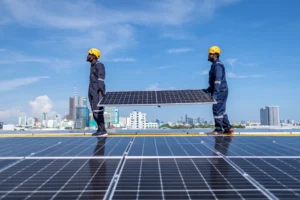
What Are The Most Common Mistakes When Getting A Residential Solar? Share: Facebook Twitter LinkedIn Pinterest The most Common Mistakes When Getting A Residential Solar
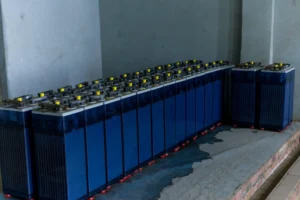
How Do I Maintain The Batteries In My Off-Grid Solar Panel System? Share: Facebook Twitter LinkedIn Pinterest Off-grid solar panel systems have become increasingly popular
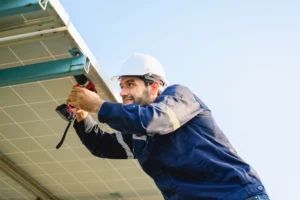
How Do I Ensure My Solar Panel System Is Safe And Meets Building Regulations? Share: Facebook Twitter LinkedIn Pinterest As more and more homeowners opt

What Are The Most Common Causes Of Damaged Solar Systems? Share: Facebook Twitter LinkedIn Pinterest Solar energy is becoming an increasingly popular renewable source for
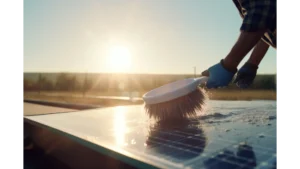
How Do I Maintain And Clean My Solar Panels? Share: Facebook Twitter LinkedIn Pinterest Maintaining and cleaning your solar panels is essential to ensure they
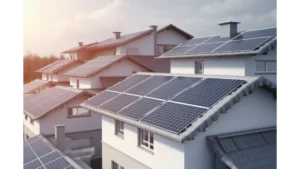
What Warranties Are Available For Residential Solar Panels Share: Facebook Twitter LinkedIn Pinterest Homeowners righfully ask “What Warranties Are Available For Residential Solar Panels ?”